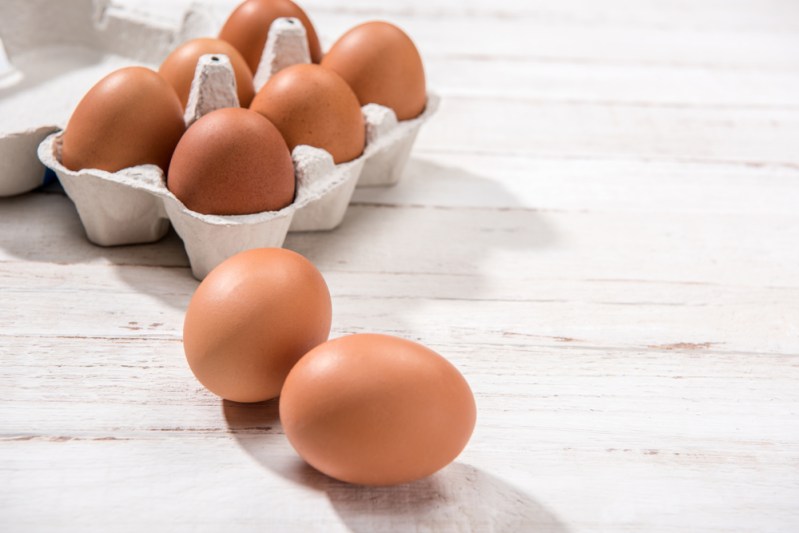
Marketing terms can be tricky to understand, but understanding marketing terms in the egg section at the grocery store is a whole new level of confusion. Claims made on packages such as “cage-free” and “organic” can confuse many of us. Aren’t all eggs just eggs? As much as we’d like the answer to be yes, several differences exist in the eggs in your grocery store. Beyond the considerable range of prices for eggs, each of the classifications of eggs holds a different meaning.
Shopping for eggs, however, doesn’t have to be confusing forever. Once you understand what each term means, you’ll find it easier to choose the best eggs in any grocery store you frequent. If you’ve ever wondered why one carton of eggs is more than double the price of the one sitting beside it, here’s why.

Egg classifications
Cage-free, organic, pasture-raised, and free-range are three of the most commonly seen labels on egg packaging. Eggs can also be classified as more than one of these, so don’t be surprised if you see combinations of terms, such as organic and pasture-raised eggs. You may have seen these terms before but haven’t thought much about them, but once you’re aware — it’s easier to make smarter choices when selecting your egg carton.
Cage-free eggs
The term cage-free means that the hens are not confined to cages. USDA’s cage-free standards detail that hens cannot be held in battery cages, but this doesn’t necessarily mean they are allowed to roam freely. Even eggs that are labeled “cage-free” may still mean that the animals were left in dark spaces or poor conditions that are not optimal. Beware of this term on egg cartons, which doesn’t always hold much meaning.
Many farms producing cage-free eggs are raising thousands of chickens at once, which means very few actually make it outside. In some cases, chickens might only have access to concrete and have no grassy areas to roam.
Free-range eggs
Free-range is not the same thing as cage-free. Unlike the term cage-free, free-range hens have access to the outdoors and have more flexibility to roam around. Free-range also automatically means cage-free, so a product should not say both. Since free-range is not regulated (unless it has a USDA organic designation, too), what free-range truly means can vary quite a bit from brand to brand.
Organic eggs
Organic eggs will have a USDA Certified Organic circle symbol on them. Any farm producing USDA Organic Eggs must adhere to strict regulations and undergo regular inspection. The USDA Organic label tells you as a shopper that the chickens have been fed an organic grain feed that does not contain fertilizers or pesticides. The feed that is given to chickens when producing conventional eggs often contains GMO corn, soy, or other harmful pesticides. For eggs to be USDA-Certified Organic, they must also be free to roam around and have access to the outdoors.
Pasture-raised eggs
Chickens who produce pasture-raised eggs are free to roam around on the pasture and eat grass, worms, and other insects. This is the ideal environment for these animals. Many pasture-raised egg cartons may also say “certified humane raised and handled.” This is a separate certification that farms can get, requiring them to adhere to standards such as using no antibiotics and allowing chickens to behave naturally and roam freely. Ideally, if your budget allows, pasture-raised eggs are the best option. Feeding chickens GMO grain feed is far less expensive than raising pasture-raised chickens, hence the major price difference between these two egg cartons.
Other tricky marketing labels with little meaning
You might also notice some other labels on egg cartons that are not true classifications. These terms are used as part of marketing tactics to trick buyers into thinking eggs are of higher quality than they actually are. For example, the terms “all-natural” or “farm-fresh” have no legal meaning.

Health benefits of pasture-raised, organic eggs
Not only are pasture-raised eggs the most humane choice, but pasture-raised eggs also contain more nutrients. Studies have found that the yolk of pasture-raised eggs has a much lower omega-6 to omega-3 fatty acid ratio than conventional eggs. Consuming more Omega-3 fatty acids and less Omega-6 fatty acids is important for fighting inflammation and warding against chronic disease. Pasture-raise eggs also contain more Vitamin A, Vitamin E, and carotenoid content than traditional eggs.
In some cases, you can even tell the difference between a conventional egg and a pasture-raised egg by examining the yolk. The yolk of a pasture-raised egg will have a deeper yellow color, whereas conventional eggs have a paler yellow color. This is due to the carotenoids these animals get from grazing on grass. Cool, right?

Finding high-quality eggs at affordable prices
Eggs are expensive, especially if you wish to purchase high-quality, organic, and pasture-raised varieties. Shopping at your local farmer’s market or straight from local farms is a great way to get quality eggs at discount prices. Many discount grocery chains such as Aldi and Lidl also offer organic, pasture-raised eggs at prices less than those of larger grocery stores. Investing in your health with quality eggs is worth the price!



